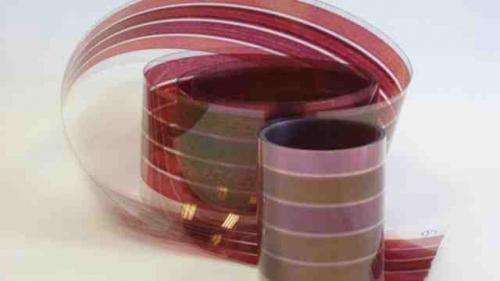Creating low-cost solar energy

Work by PhD student Alex Barker, under the supervision of Dr Justin Hodgkiss, a senior lecturer in the School of Chemical and Physical Sciences, is helping to improve the efficiency of next generation solar cells made from materials like plastics.
The research, published recently by the prestigious international Journal of the American Chemical Society, addresses the long-standing question of how light produces charge pairs far enough apart from each other that they are free to flow as current, rather than staying bound together and ultimately just releasing heat.
The technique used by the researchers was to freeze the solar cells to -263 degrees Celsius, where charge pairs get stuck together. They then used lasers to measure the how far apart they moved as the temperatures increase.
"We found that the efficiency of polymer, or plastic-based, solar cell is determined by the ability of charge pairs to rapidly escape from each other while they are still 'hot' from the light energy," says Dr Hodgkiss, a 2011 Rutherford Discovery Fellow.
He adds that understanding how plastic solar cells work will result in more efficient and cheaper conductive materials that overcome the limitations of conventional solar cells.
"Because they're plastic and flexible, they could be rolled out to cover a tent or used as semi-transparent filters on windows."
The findings of the research settle a long-standing debate about how polymer solar cells work, and offers potential to guide the design of cheaper and more efficient materials, by isolating the key step in their development.
More information: "Distance Distributions of Photogenerated Charge Pairs in Organic Photovoltaic Cells" Alex J. Barker, Kai Chen, and Justin M. Hodgkiss. Journal of the American Chemical Society 2014 136 (34), 12018-12026. DOI: 10.1021/ja505380j
Journal information: Journal of the American Chemical Society
Provided by Victoria University





















